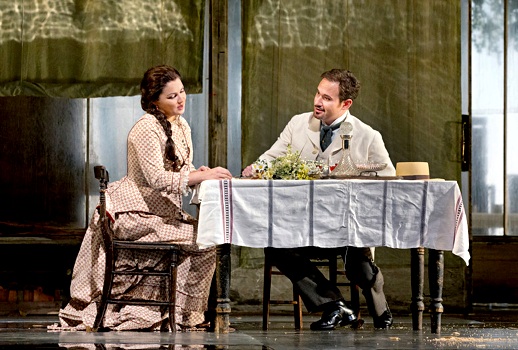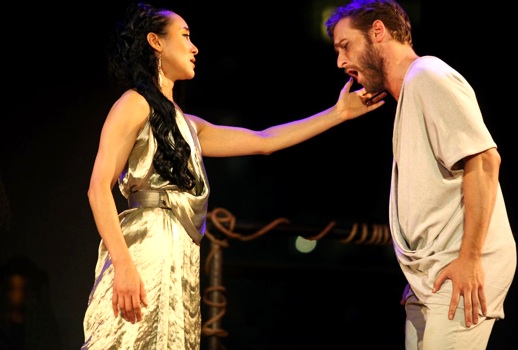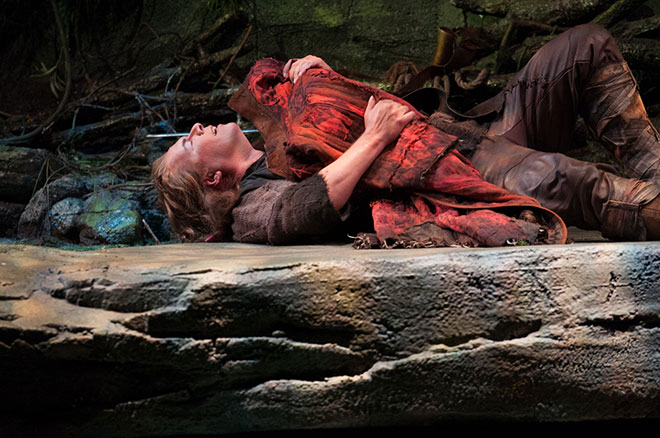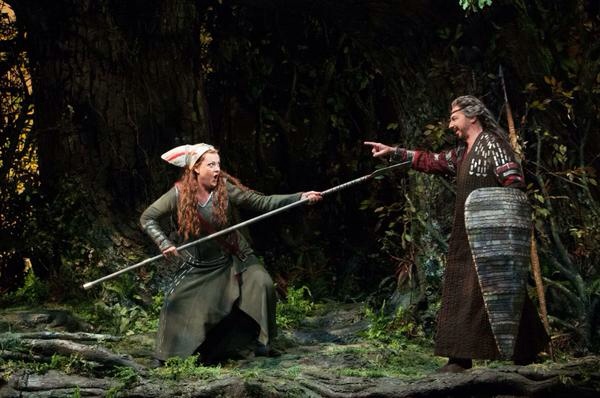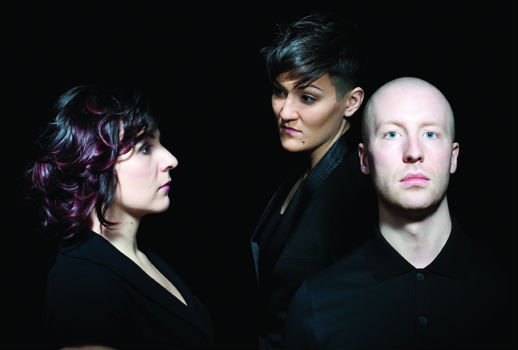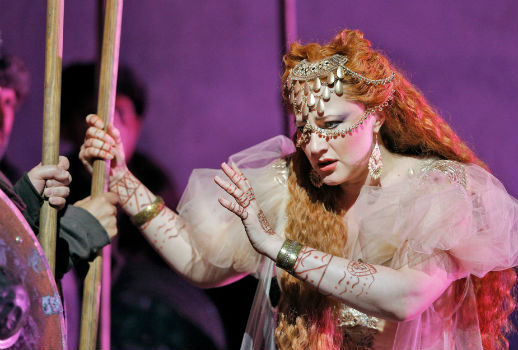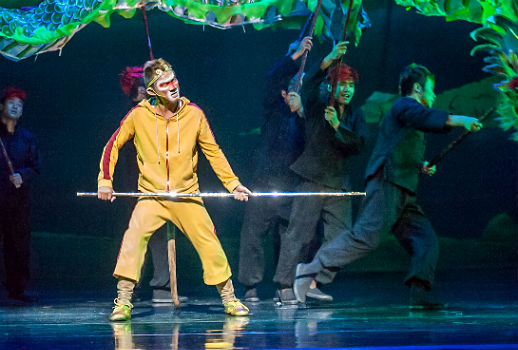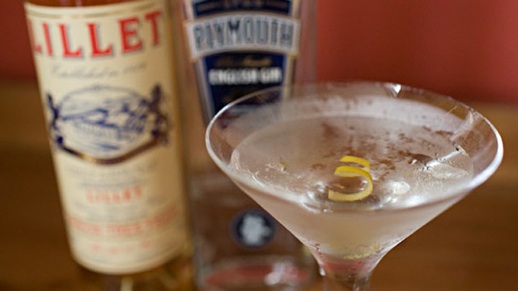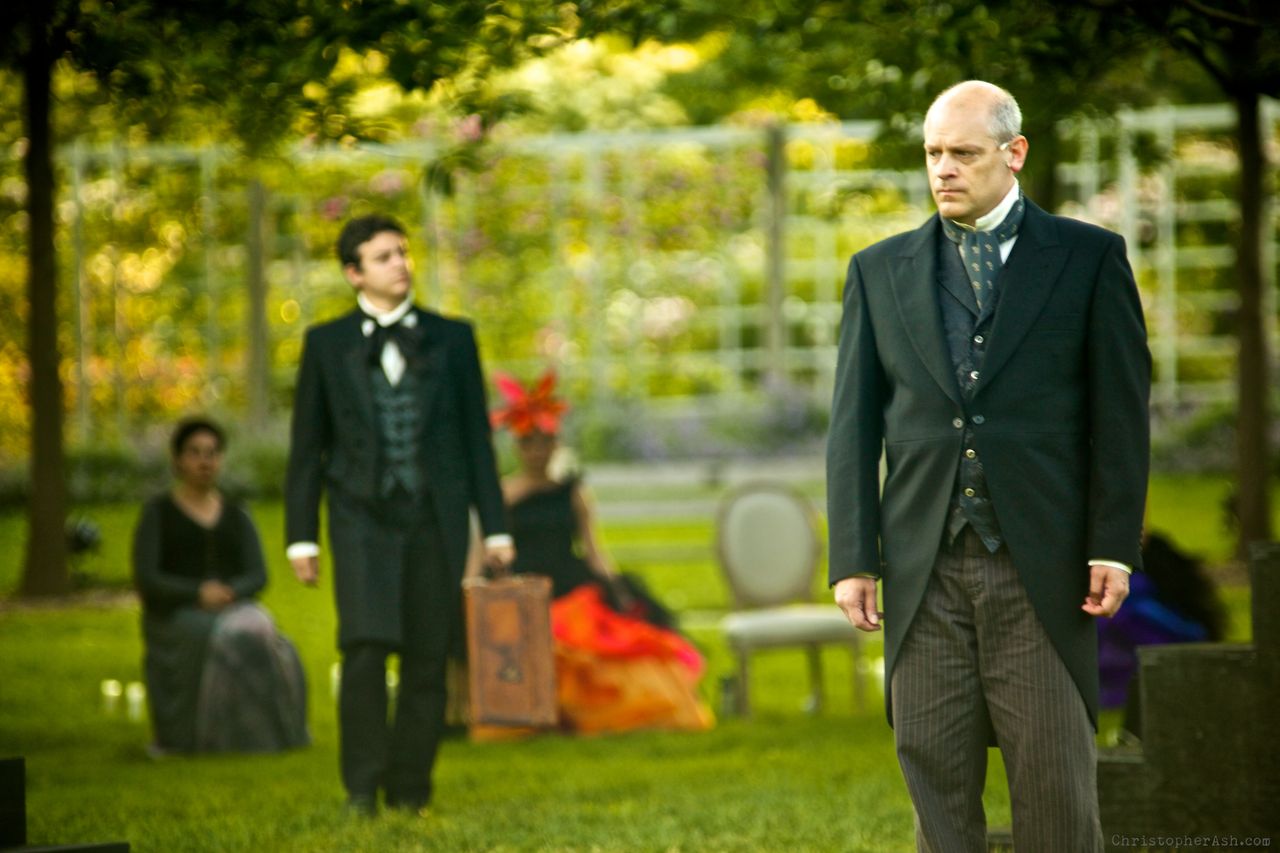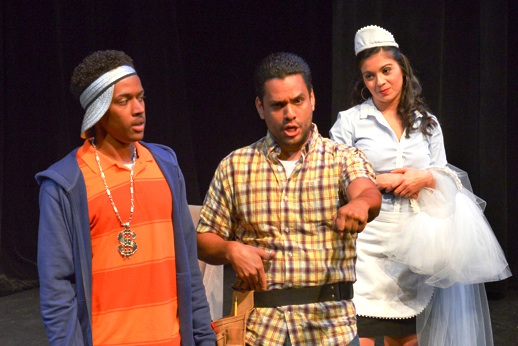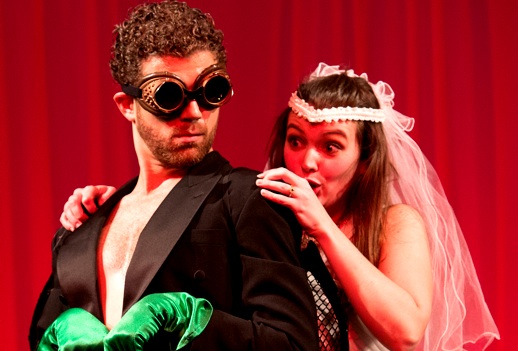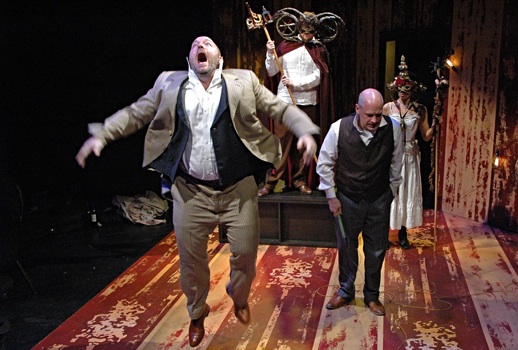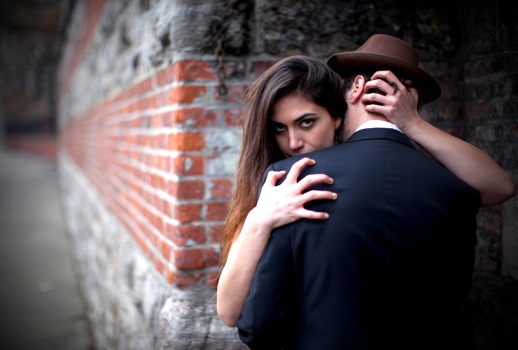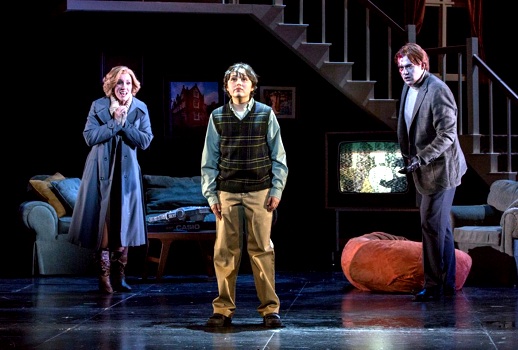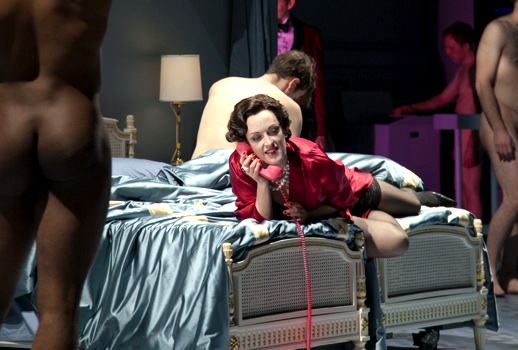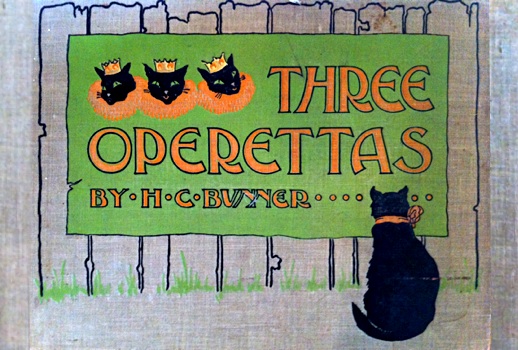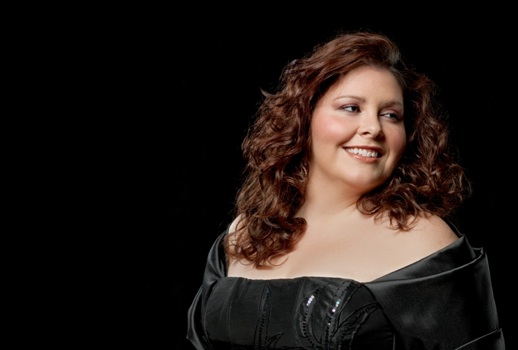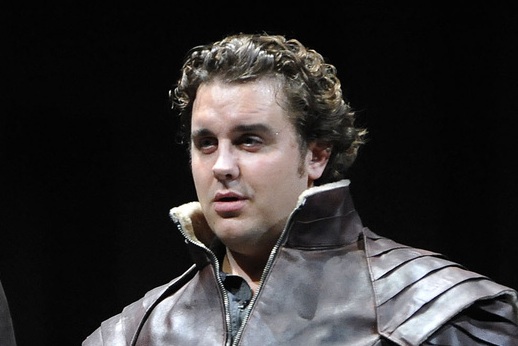
John Yohalem
John Yohalem's critical writings have appeared in the New York Times Book Review, American Theater, Opera News, the Seattle Weekly, Christopher Street, Opera Today, Musical America and Enchanté: The Journal for the Urbane Pagan, among other publications. He claims to have attended 628 different operatic works (not to mention forty operettas), but others who were present are not sure they spotted him. What fascinates him, besides the links between operatic event and contemporary history, is how the operatic machine works: How voice and music and the ritual experience of theater interact to produce something beyond itself. He is writing a book on Shamanic Opera-Going.
Last night, the Met opened the 2013-14 season with a handsome, fairly conservative new production of Eugene Onegin by Deborah Warner that replaces the handsome, fairly conservative one by Robert Carsen. (The trend is clear.)
In the program for Opera Omnia’s production of Monteverdi’s Il ritorno di Ulisse, Crystal Manich, the company’s stage director, speaks of producing “baroque works in non-traditional ways.”
There is a mighty appetite among both old Wagnerians and new ones to see a Ring that follows—if not too slavishly—the scenic requests of the libretto.
Is Der Ring des Nibelungen responsible for the transformation of Seattle from a gray, damp, low-rise Boeing company town where half the jokes had punchlines in Norwegian (and were about lutefisk in any case) into today's booming cultural metropolis? I like to think so.
Leslie Uyeda’s When the Sun Comes Out is being premiered by Vancouver’s Queer Arts Festival as “Canada’s first Lesbian opera” at the Roundhouse Community Center in Yaletown. I caught the second performance; there is one more tomorrow night.
Sergey Taneyev, pupil of Tchaikovsky and teacher of Scriabin and Rachmaninov, composed just one opera, Oresteia, premiered in 1895 when he was 39.
East is West and West is East—the border ever less easy to fix.
The big news from Bel Canto at Caramoor’s presentation of Les Vêpres Siciliennes last Saturday is far from unexpected.
Nathaniel Hawthorne, the repentant Puritan—that is, he repented that his family had once been Puritans—describes the voice of Rappaccini’s Daughter, Beatrice, as “rich as a tropical sunset, … which made Giovanni, though he knew not why, think of deep hues of purple or crimson and of perfumes heavily delectable.”
Morningside Opera’s ¡Figaro! (90210) is a staging/translation (into English, Spanish, et al.) of Le Nozze as if in contemporary Beverly Hills (as if!), and it’s playing at the NSD Theater on Bank Street near the Meatpacking District through next Sunday.
The best joke in Offenbach’s delicious Orphée aux Enfers is the opening premise: Orphée and Eurydice are miserably married, due to her utter boredom with his old-fashioned music.
There has never been a successful vampire musical—so they say. But that’s just not true.
Christoph Willibald Gluck wrote some fifty operatic works, not counting revisions and translations, and in every form extant in the two cities, Paris and Vienna, in which he made his career.
It has always puzzled me—and I’m not the only one—that so few successful operas have been composed in Spanish.
“I didn’t think anything could be campier than Adriana. But this is nothing but camp. Adriana at least has tunes.”
In any narrative, the unmentioned—the unmentionable—will always be more alarming than that which is carefully described.
As with all good myths, certainly all the myths at the heart of Wagner’s operas, the juggling of symbols and archetypes and themes in Parsifal opens the piece to a great variety of interpretations.
Like Miss Adelaide the well-known fiancée in Guys and Dolls, the New York City Opera may be down but she’s not flat as all that.
Either you adore “The World Is but a Broken Toy” from Act II of Princess Ida and have always wanted to hear it sung by voices of operatic quality… or you don’t… and you haven’t.
Love grand opera but wary of a six o’clock curtain with five hours of music behind it? (And nothing is grander than Berlioz’s Les Troyens, eh?) Your dilemma has been solved. Show up at the Met at 7:30 or 8:00, whenever they have the first intermission.
You can see the logic of it: The Juilliard School wants to show off its opera program, the Ellen and James S. Marcus Institute for Vocal Arts, which is (on the evidence) brim-full of talent.
Everyone who revives Bellini’s Beatrice di Tenda, as the Collegiate Chorale did at Carnegie Hall on Wednesday night, calls the piece an “overlooked masterpiece.”
Beatrice di Tenda was a problem child, Vincenzo Bellini an alternately protective and disparaging parent.
Kaiser Overall—the name is intended to be sung in English, though the opera is in German—is probably mad, though perhaps no madder than anyone else.
Tell us: What was the best of 2025?
Parterre Box concludes the thrilling first year of Talk of the Town by inviting your lightning rod opinions on several more categories of operatic argumentation.
Parterre Box concludes the thrilling first year of Talk of the Town by inviting your lightning rod opinions on several more categories of operatic argumentation.
Sign up for our free Newsletter.
Support Parterre Box
Donate to keep opera's liveliest publication free and independent. No paywalls, no institutional backing, no bootlicking.
Get our free newsletter
Opera's top reads delivered to your email weekly…ish.
Join over 100k readers.
The best opera magazine on the web.
Reviews, breaking news, critical essays, and brainrot commentary on opera from those demented enough to love it.
Essentials
Copyright © 2026 Parterre Box.
All rights reserved.
Registration or use of this site constitutes acceptance of our Terms & Conditions and our Privacy Policy.
